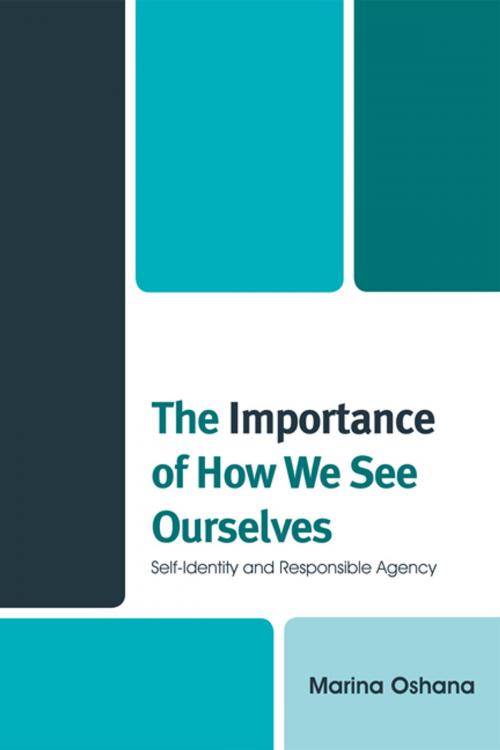The Importance of How We See Ourselves
Self-Identity and Responsible Agency
Nonfiction, Religion & Spirituality, Philosophy, Metaphysics| Author: | Marina A.L. Oshana | ISBN: | 9780739149355 |
| Publisher: | Lexington Books | Publication: | September 28, 2010 |
| Imprint: | Lexington Books | Language: | English |
| Author: | Marina A.L. Oshana |
| ISBN: | 9780739149355 |
| Publisher: | Lexington Books |
| Publication: | September 28, 2010 |
| Imprint: | Lexington Books |
| Language: | English |
The past fifteen years have seen a wellspring of interest in the concept and practical nature of the self. Questions about the metaphysics of personal identity have preoccupied philosophical scholarship. Less attention has been paid to the topic of the self from the first-person standpoint, the point of view of a person who regards certain phenomena as distinctive of and essential to her identity. Nor has much attention been paid to how this concept of the self is related to responsible agency. This book argues that a person's self-conception affects her status as a responsible agent. (1) The book develops a hybrid view of the self as the object of self-consciousness that is the subject and owner of the events that occur by means of its agency. Agents have unique identities as particular beings, and identify themselves distinctively. (2) The book argues that a healthy, veridical sense of self grounds responsible agency by enabling persons to be aware of what they do and to understand their motives. Certain pathologies upset the unity of a person's identity, while others impair the lucidity of a person's sense of self, and still others disturb general features of responsible agency such as the capacity to act purposively and realize one's will through intentional behavior. The book explains what it means to be oneself, and what departures from this state signify for a person's ability to navigate life and make sense of himself in the process. The notion of acting out of character-of failing to be oneself in some noteworthy way-is relevant to a person's culpability because an individual's self-conception affects his status as an accountable agent. (3) To explain this, the book defends an account of responsible agency. Responsible persons are accountable, alert to normative reasons in support of or in opposition to their behavior and able to respond to reasons for action bearing normative force because these reasons have normative force. Accountable persons are unified agents, a status that calls for an admixture of being oneself, of agency-of authorship, executive control, and intentionality in thought and action, and of ownership.
The past fifteen years have seen a wellspring of interest in the concept and practical nature of the self. Questions about the metaphysics of personal identity have preoccupied philosophical scholarship. Less attention has been paid to the topic of the self from the first-person standpoint, the point of view of a person who regards certain phenomena as distinctive of and essential to her identity. Nor has much attention been paid to how this concept of the self is related to responsible agency. This book argues that a person's self-conception affects her status as a responsible agent. (1) The book develops a hybrid view of the self as the object of self-consciousness that is the subject and owner of the events that occur by means of its agency. Agents have unique identities as particular beings, and identify themselves distinctively. (2) The book argues that a healthy, veridical sense of self grounds responsible agency by enabling persons to be aware of what they do and to understand their motives. Certain pathologies upset the unity of a person's identity, while others impair the lucidity of a person's sense of self, and still others disturb general features of responsible agency such as the capacity to act purposively and realize one's will through intentional behavior. The book explains what it means to be oneself, and what departures from this state signify for a person's ability to navigate life and make sense of himself in the process. The notion of acting out of character-of failing to be oneself in some noteworthy way-is relevant to a person's culpability because an individual's self-conception affects his status as an accountable agent. (3) To explain this, the book defends an account of responsible agency. Responsible persons are accountable, alert to normative reasons in support of or in opposition to their behavior and able to respond to reasons for action bearing normative force because these reasons have normative force. Accountable persons are unified agents, a status that calls for an admixture of being oneself, of agency-of authorship, executive control, and intentionality in thought and action, and of ownership.















